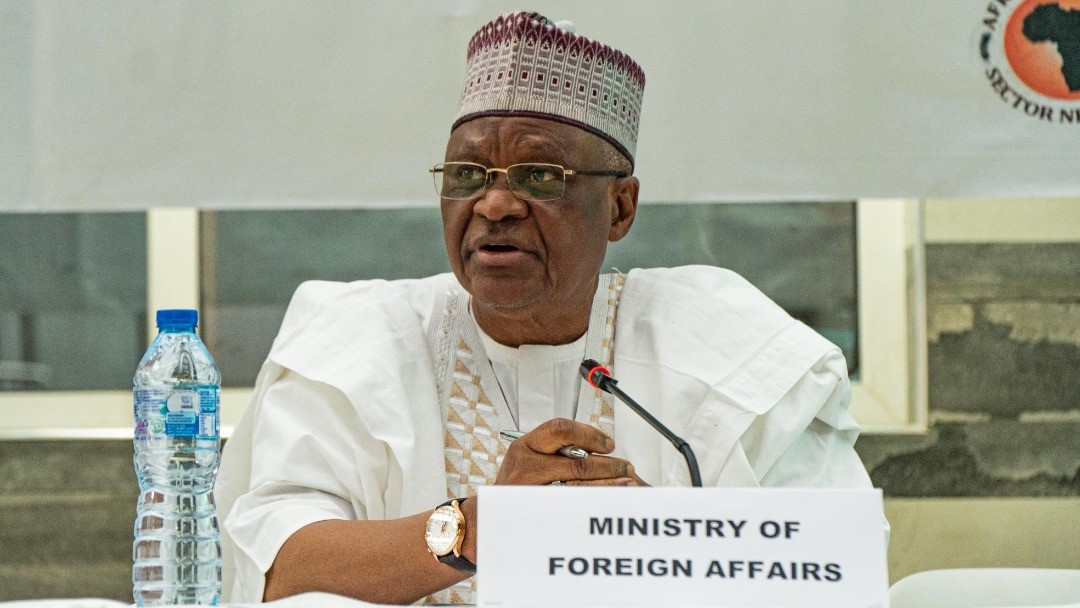Security Sector Reforms: ECOWAS and partners organize intensive Capacity Development Workshop
22 Sep, 202219th September 2022, Abuja – In a bid to promote awareness of the Economic Community of West African States (ECOWAS) Policy Framework for Security Sector Reform and Governance (SSRG), the ECOWAS Commission with the financial support of the European Union (EU) and the German Federal Ministry of Economic Cooperation and Development (BMZ) commenced a four-day intensive training workshop in Abuja, Nigeria.
The essence of the workshop is to enhance stakeholder appreciation of the importance and value of SSRG through introduction to key provisions and core principles of ECOWAS’ SSRG, promote a common vision and shared understanding of SSRG among national security stakeholders and enhance institution and capacity building for SSRG in a way that strengthens national ownership, national responsibility, and national action for reform. The workshop also aims to improve effectiveness, professionalism, accountability, and responsiveness of security services to the needs of the people. Furthermore, the training intends to mainstream gender aspects into SSRG and promote the role of women and youth in peace and security.
In his opening remarks, Ambassador Zubairu Dada, the Nigerian Honourable Minister of State for Foreign Affairs, described the Security Sector Reform and Governance (SSRG) as an indispensable component of conflict prevention, peacebuilding and development. He reiterated that “Nigeria restates its commitment to having a strong ECOWAS community and strongly recommends that the Commission explores every opportunity at its disposal towards supporting national security sector reform processes within the ECOWAS community. Security institutions cannot be viably reformed without a transformation of the wider relationship between the Member States and their societies.”
Speaking during the workshop, Mr Alexandre Borges Gomes, the Deputy Head of the European Union Delegation to Nigeria, applauded the ECOWAS commission as the most successful of the African Regional Integration Organizations (RIOs), especially since it used the EU as a model to draw on. Mr Gomes described the ECOWAS Policy Framework for SSRG as “a normative driver of change”. He hoped that “the next four days of training and experience-sharing would generate best practices and concrete ways of adapting the regional SSRG policy framework in Nigeria. Mr Gomes assured participants that the European Union will continue to be part of the SSRG
dialogue and a strong advocate for building the momentum in fostering both regional and national capacities for SSRG policy implementation.
In her remarks, Dr Uju Agomoh, the Regional Coordinator of the ASSN stressed that there is a need to integrate SSRG mechanism and not just government interventions “as we cannot speak of development without peace”. Dr Agomoh highlighted the fact that security literacy can be conducted within the continent in a manner that makes it appealing to all so that everyone can own and be part of the security transformation agenda of ECOWAS and its Member States. She stressed the need to build synergy with already existing mechanisms to achieve the transformation being sought in the security sector.
Representing The ECOWAS Commissioner for Political Affairs, Peace and Security, Dr Isaac Armstrong, utilized the opportunity to highlight two significant components of the ECOWAS SSRG Policy Framework namely: Human Security, which he described as “the placement of the individual and Community citizens at the centre of security determination, provision, delivery, management, accountability and oversight” and the second component, “Conflict Prevention: which represents a move away from the traditional Western conceptualization of Security Sector Reform as a post-conflict intervention measure to one that places it as an aspect of conflict prevention.”
Dr Armstrong cautioned that “we do not have to wait for crisis to erupt and for the capacity of our security sector to fall short before we take steps to improve it. In this sense, our SSRG is proactive. Beyond the milestone of adopting the ECOWAS SSRG Policy Framework, we now have the important tasks of widely disseminating the principles and elements contained in it, building capacity of our security institutions, and supporting Member States to improve their security sectors in a sustainable and sustained manner.
This workshop was organized by the African Security Sector Network (ASSN) in collaboration with the ECOWAS Peace and Security Architecture and Operations (EPSAO) project with financial support from the EU and BMZ.



















